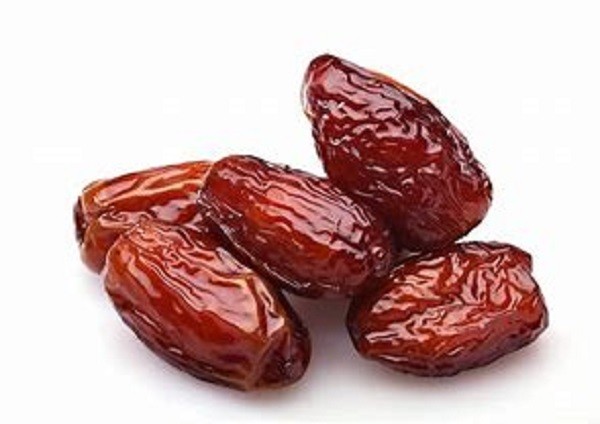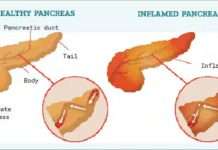 Date fruit, botanically known as phoenix dactylifera, comes from a perennial palm fruit tree wildly cultured around the globe, for its high source of energy due to the presence of readily digested and absorbed carbohydrates, mainly glucose and fructose.
Date fruit, botanically known as phoenix dactylifera, comes from a perennial palm fruit tree wildly cultured around the globe, for its high source of energy due to the presence of readily digested and absorbed carbohydrates, mainly glucose and fructose.
Date fruit has a soft honey-like taste, which provides unique functional and nutritious health benefits rooted in its rich flavonoids and phenolic, which have strong antioxidant properties. It is commonly found in dry and semiarid regions, especially in West Asia, and North Africa, with the extremely hot and dry season.
A recent study from the Food Bioscience Journal titled “Nutritional and biological characteristics of the date palm fruit (Phoenix dactylifera L.) – A review” has revealed that date fruit is an inexpensive source of nutrients including carbohydrates, proteins, amino acids and dietary minerals (selenium, potassium, calcium, magnesium, manganese, iron, dietary fiber, vitamins, carotenoids and fatty acids).
The study conducted by M. Iftikhar Hussain as the lead author alongside his colleagues emphasized the anti-bacteria and anti-fungi properties present in a date. It is also a strong source of anti-tumor, immune-modulating, anti-diabetic, anti-inflammatory, and cholesterol-lowering potential and it encourages the growth of beneficial gut microflora.
Another finding published in the Scientific Journal of King Faisal University titled “Nutritional Security of Date Palm Fruit: An Empirical Analysis for Al-Ahsa Region in Saudi Arabia” stated that date palm fruit is distinguished by its high nutritious value which gives it special consideration as a contributor to nutrition security. The major chemical constituents of dates are the simple carbohydrates in the form of glucose and fructose, making them an excellent source of instant energy.
The study further showed the importance of dates as a source of non-starch polysaccharides (NSPs) as well as frequent consumption of dates which is associated with gaining weight and some chronic diseases. It is a fact that dates are the main source of readily absorbable sugar such as glucose and fructose but are also rich in non-starch polysaccharides (NSP).
As earlier indicated, the importance of dates as a source of NSPs, it has been stated that NSPs in dates play an important role in increasing satiety, which has shown to be associated with decreasing body weight.
Although many people believe that date is associated with some chronic diseases due to its high simple carbohydrate contents, further research, particularly long-term studies, may be required to determine the association between date consumption and some hereditary diseases like diabetes and blood pressure.
Other health benefits of date fruit are as follows:
- Highly nutritious
Dates have an excellent nutrition profile, since they’re dried, their calorie content is higher than most fresh fruit. The calorie content of dates is similar to that of other dried fruits, such as raisins and figs.
- High in fiber
Getting enough fiber is important for your overall health. Fiber gives you digestive health by preventing constipation. It promotes regular bowel movements by contributing to the formation of stool. In one study, 21 people who consumed 7 dates per day for 21 days experienced improvements in stool frequency and had a significant increase in bowel movements compared to when they did not eat dates.
- High in disease-fighting antioxidants
Dates provide various antioxidants that have a number of health benefits to offer, including a reduced risk of several diseases. Antioxidants protect your cells from free radicals, which are unstable molecules that may cause harmful reactions in your body and lead to disease.
- Promotes brain health
Eating dates may help improve brain function. Laboratory studies have found dates to be helpful for lowering inflammatory markers, such as interleukin 6 (IL-6), in the brain. High levels of IL-6 are associated with a higher risk of neurodegenerative diseases like Alzheimer’s.
- Promotes natural labour
Dates have been studied for their potential to promote and ease late-term labour in pregnant women. Eating these fruits throughout the last few weeks of pregnancy may promote cervical dilation and lower the need for induced labour. They may also be helpful for reducing labour time.
- Natural sweetener
Dates are a source of fructose, which is a natural type of sugar found in fruit. For this reason, dates are very sweet and also have a subtle caramel-like taste. They make a great healthy substitute for white sugar in recipes due to the nutrients, fiber, and antioxidants that they provide.
- Boosts bone health
Dates contain several minerals, including phosphorus, potassium, calcium, and magnesium. All of these have been studied for their potential to prevent bone-related conditions like osteoporosis.
- Controls blood sugar
Dates have the potential to help with blood sugar regulation due to their low glycemic index, fiber, and antioxidants. Thus, eating them may benefit diabetes management.













